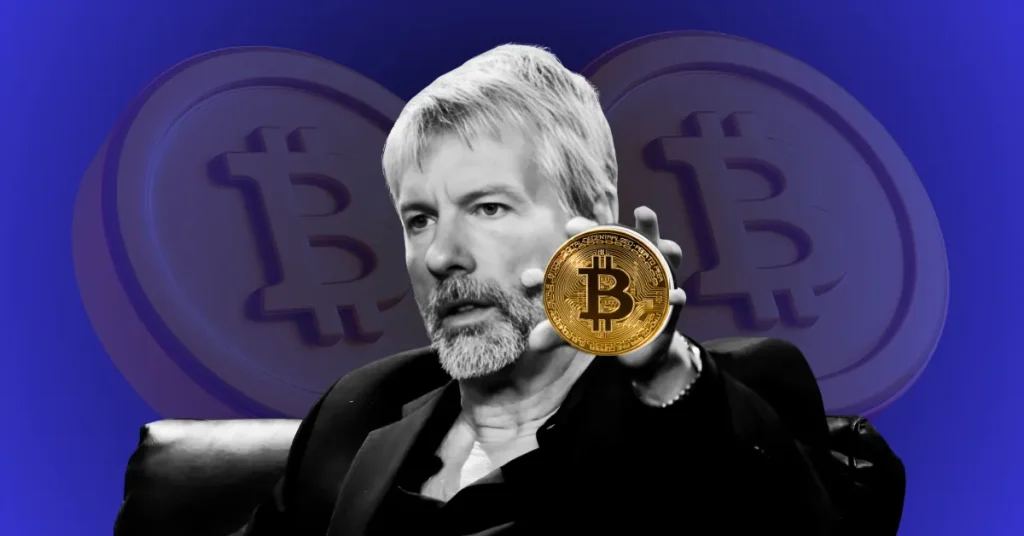
If you follow crypto assets (virtual currency) related media or Twitter, you may have seen news or posts proudly announcing that Javier Milei won the Argentina presidential election run-off on November 19th. You must have seen it.
This is disturbing to me because it highlights how blind crypto enthusiasts can be to the larger issue, and it’s important to note that “Be careful what you wish for.” It reminds me of the old adage, “Please add a .”
Don’t get me wrong, I’m happy that Javier Millay won, and if I were Argentinian I would have voted for him (albeit reluctantly and with deep sadness). (The reason is that “continuing the current administration’s line” by his opponent, Sergio Masa, would have been even worse).
Argentina needs big changes, and I want to see the results of the radical economic experiment that Millay, an outspoken libertarian economist, has promised.
However, there are three important points to keep in mind:
- Millais is not as much of a “pro-freedom advocate” as many people think.
- Many Argentines will have to endure even greater economic hardship than they currently do as Mr. Millei cuts benefits and subsidies and cuts government spending. This is tragic but necessary and will ultimately lead to growth. But let’s not be too proud to be a pain to millions of people.
- Bitcoin will not be part of Mr. Milley’s agenda, at least not for the next few years. They have a lot of other things to worry about, not least the upcoming currency turmoil and huge debts from the IMF.
From now on, the above points will be explained in more detail.
But before that, there is one positive point from this result. That said, the victory was quite overwhelming. Millay won the highest percentage of votes (nearly 56%) since Juan Peron’s landslide victory in 1973. His opponent, Sergio Masa, the current economy minister, admitted defeat even before the official results were released.
A very clear message was sent from a fed up nation. And the public has plenty of reasons to be fed up. Annual inflation exceeds 140%, more than two in five people live below the poverty line, and the country’s currency performs among the worst in the world against the US dollar.
Voters made a brave decision to demand change and risk. In this respect, I have great respect for the Argentine people and sincerely hope that Mr. Millay can create an economic miracle. At least he has a chance. His opponent, Mr. Masa, doesn’t even have that chance.
freedom?
But it will be a turbulent process, both economically and socially. Millais promises “freedom” from the shackles of socialism and a desperate government trying to buy votes through wasteful spending.
Mr. Millay supports free markets and free trade. Millay’s rhetoric about “individual freedom” strikes a chord with angry people. These are all freedoms I can support, but I have to recognize that they may come at the expense of other freedoms that many of us take for granted.
One is financial independence. Mr. Millais ran for office on the promise of dollarization. Dollarization, at the very least, would solve the currency crisis that is hampering even basic operations. However, it would not necessarily provide relief from inflation and would lock the country into the contradictory monetary policies of the world’s superpowers.
The other is reproductive rights. Millay is staunchly opposed to abortion, and she has vowed to hold a referendum to abolish a woman’s right to terminate an unwanted pregnancy before 14 weeks. Millais also promised a “cultural war” against socialism and feminism. Doesn’t it give you a bad feeling?
It is important to remember that Milay and Vice President-elect Victoria Villarruel are far-right politically. Both have downplayed the atrocities committed during Argentina’s dictatorship, proposed demolishing museums commemorating victims and emphasized “zero tolerance” for crime. “Freedom” that applies only to those who agree with the government is not true freedom.
growth?
It is unclear how growth will be achieved. Millais has said he would cut all ties with China, his second largest trading partner. (Millais calls the Chinese “assassins.” “Dictator” sounds tame by comparison.) I mean).
It also said it would refuse to even talk to its “communist” neighbors such as Brazil (Argentina’s largest trading partner), Colombia (fifth largest trading partner) and Chile, although private sector transactions could continue. There is.
At a time when the worst drought in 60 years has reduced production of soybean products, Argentina’s biggest export, currency turmoil due to dollarization is likely to take a big toll on the country’s revenue.
The international organization that should be happy is the International Monetary Fund (IMF). Argentina is the IMF’s largest borrower, with outstanding debt more than twice that of the second largest (Egypt). The IMF is pushing for austerity, and Millais seems willing to make it happen. However, until fiscal health is restored, austerity will hinder growth. It may be necessary, but it’s painful.
It’s also worth bearing in mind that Mr. Millais has little leadership or business experience, having only spent a few years in Congress.
Millay’s background is as a TV commentator and economics professor, and his ability to manage a team, let alone a country, is unknown. He also reportedly used to be a tantric sex guru and cosplay is his hobby. I appreciate his novelty, but as we have seen elsewhere, a carnivalesque approach to governance can damage a country’s reputation. Moreover, it makes the people tired.
Bitcoin?
Finally, there is no sign that Bitcoin will be part of Mr. Milley’s agenda. At least for the time being, and probably not ever.
Mr. Millay, as far as I can find, has rarely spoken publicly about Bitcoin unless he was answering a direct question. Mr. Millay does not seem like an evangelist who wants to spread the word about Bitcoin. He gives the impression that he is appealing to his base by espousing an anti-system ethos. But for him, Bitcoin is more of a distraction than a tool.
And Millais can’t afford to annoy the IMF, which doesn’t like the idea of Bitcoin at all. Last year, Argentina’s parliament accepted a $45 billion (approximately 6.75 trillion yen, equivalent to 150 yen to the dollar) IMF loan, but the loan had conditions attached to restricting the use of crypto assets. The IMF has since come to the realization that banning Bitcoin is not realistic, but it is still not a fan of Bitcoin.
good news?
Mr. Millais may be radical enough to tell the IMF to “shut up.” But if he intends to abandon China, the only other major lender left, it would be tantamount to economic suicide.
One piece of good news is that Milley is unlikely to try to stem the country’s growing interest in Bitcoin, and the ban on banks offering crypto services could be lifted. Argentina’s securities regulator approved Bitcoin derivatives this year. Bitcoin holders will make huge profits. In terms of Argentine pesos, the price of Bitcoin has increased nearly 400% over the past year.
But Bitcoin will never become Argentina’s standard currency, and Millay will only mention it when asked directly. The situation is quite different from that of El Salvador, which has a president who sees Bitcoin as a tool for freedom and is slow to bow to the IMF.
That said, Bitcoin will benefit from the changes ahead in Argentina. Interest in Bitcoin will continue to grow, especially as the nation faces further currency turmoil and inflation takes time to subside.
More importantly, Argentina’s chances of prosperity may be restored. The economic and social costs of runaway inflation would have been intense, prolonged and disastrous for governments lacking the courage to take the necessary measures. Mr. Millais does not appear to lack courage.
And this economic experiment could provide a roadmap for other struggling countries eager to escape the abyss of socialism.
I’m hopeful. I’m glad Mr. Millais won. But this is not a victory for Bitcoin or a victory for freedom as many people think. We need to be mindful of the pain that awaits this beautiful country.
|Translation and editing: Akiko Yamaguchi, Takayuki Masuda
|Image: Shutterstock
|Original text: Argentina’s Election: What Bitcoiners Are Getting Wrong
The post Following the Argentine presidential election: What Bitcoiners misunderstand | CoinDesk JAPAN appeared first on Our Bitcoin News.

 1 year ago
97
1 year ago
97














 English (US) ·
English (US) ·